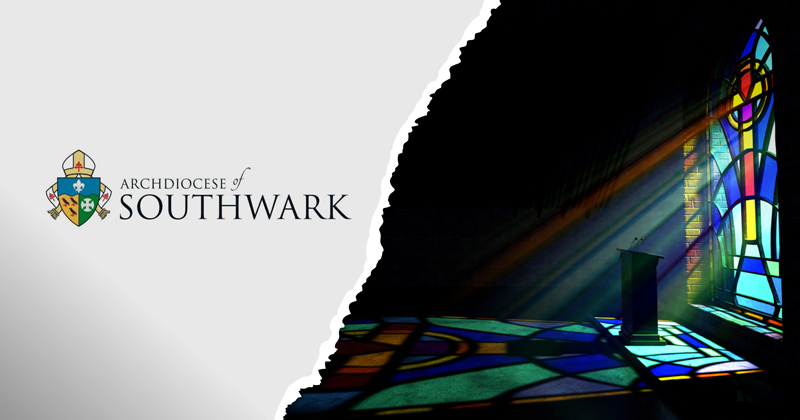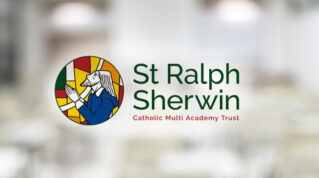A Catholic archdiocese has been accused of subjecting leaders to “inappropriate pressure” and threatening to force out obstructive governors in its bid for “universal academisation”.
In a letter seen by Schools Week, the NAHT leaders’ union revealed members in the Archdiocese of Southwark say they have been “met with hostility” and fear “negative repercussions” for questioning the conversion plans.
They have also claimed the body representing the Catholic bishops’ national education policy has hinted that those fighting proposals to join one of five religious multi-academy trusts could be downgraded during Catholic inspections.
Leaders ‘facing coercion’
The Archdiocese of Southwark wants to place all its schools into five MATs of between 30 and 40 academies. It expects all schools to join them “over the coming two to three years”.
But Rob Kelsall, the NAHT’s assistant general secretary, told the archdiocese the union had received reports that “leaders and governors are being subjected to undue and inappropriate pressure from your office to convert to academy status”.
Schools refusing to make the switch are “facing coercion to proceed with academisation, irrespective of whether such a move aligns with the best interests of the school”.
The NAHT has also received “multiple reports” that foundation governors – appointed by the diocese – are “being informed that they have a duty to pursue academisation” as it is the “bishop’s preference”.
Kelsall noted that if this was the case, “such actions would represent a gross abuse of power”.
One head, who did not want to be named, said they chose not to join one of the MATs because they weren’t satisfied with the diocese’s answer to the question: “What do my kids get out of it?”
There’s “nothing wrong in insisting schools in trouble should join a multi-academy trust”, they added. But to “treat all your schools the same way, especially the high-performing ones, makes no sense – especially for the children in our care”.
Guidance produced by the National Governance Association (NGA) states the “decision on when to convert and who to join with remains with the governing board”.
For those in schools with a religious character it was “worth taking the time to consider” whether conversion “is the right decision” even if the religious authority wanted them to move into a specific MAT that it ran.
Archdiocese told: ‘Cease hostility’
Kelsall argued such “external pressure…that seeks to override this legal position” was “entirely inappropriate” and raised “serious ethical and legal concerns”.
“If foundation governors are being coerced into advancing academisation, this would be in direct conflict with their statutory duty to act in the best interests of the school.
“Any attempt to replace foundation governors solely on the basis that they do not support academisation would be a fundamental subversion of democratic governance structures and would call into question the integrity of the entire process.”
An email sent to union members last week said the NAHT was working with the NGA to draw up a motion for governors to use for formal votes “to strengthen your position when dealing with any attempt to force you to academise”.
An archdiocese spokesperson did not dispute the claims in the letter, but said its “priority is providing schools that deliver high-quality Catholic education for our pupils”.
Schools Week revealed in December that all but one of the 19 English Catholic dioceses were pursuing trust growth plans, with one planning to split almost 200 schools between three super-sized trusts.
Latest government figures show there are more than 1,900 Catholic state schools in England. Of these more than 1,000 are academies. In Southwark, just over half of Catholic 152 primaries and secondaries are in a trust.
Fears schools could be marked down
The NAHT’s letter went on to state that it had heard reports the Catholic Education Service (CES) had suggested those resisting conversions “may receive less favourable judgments from the Catholic Schools Inspectorate”.

The inspectorate, launched in 2019 with CES’s help, gives schools an overall grade after assessing their “Catholic life and mission”, religious education and collective worship.
Kelsall noted that if this was the case, “such actions would represent a gross abuse of power” and might breach the education and employment acts.
A CES spokesperson stressed there was “nothing within the inspection process requiring academisation”.
Paul Whiteman, the general secretary of the NAHT, said legislation was clear that decisions on governance structure and whether or not to pursue academisation rested with the governing board, as the school’s strategic decision-making body.
















This is what happened in Hexham and Newcastle Diocese but recieved no coverage at the time. NEU were aware. Review of Education recomended by Archbishop but not followed through. Headteachers left and Governors put under pressure.
The same thing happened at my old school in Birmingham in 2019. Governors unanimously voted against joining an existing Multi-Academy Company as there were no signs of improvements or impact that MAC had on its 3 schools. Governors including Foundation Governors were concerned that the only conversations were about cost-savings, and procurement as opposed to real pupil outcomes. After the vote the Archdiocese contacted the Head and Chair and demanded that the board re-vote, if it did not vote to join the MAC, they would remove the Governing Body (some of which had served for over 20 years) and replace with an IEB. The Governors revoted in favour as we all agreed it would be better to be part of shaping the future of the school than having a Diocese appointed IEB (including the CEO if the MAC) in charge. Unfortunately there were many casualties in the subsequent ‘take-over’ and the way the Diocese treated the Headteacher was appalling. We didn’t call it the ‘Catholic Mafia’ for no reason!
This is happening in Hallam Diocese. St.Pius X school in Rotherham has been forced to join the St.Francis MAT by the governors wanting to undertake due diligence and asking important questions but then being forced to leave because they were not ‘upholding the will of the Bishop’. They were replaced by Diocesan appointed people who have no connection to the school or community, to force the vote to join the MAT through. Huge salaries at the executive team being paid for by the takeover of schools. No one in the school or community wants this. Long serving headteacher was under tremendous pressure which sadly impacted on her health and wellbeing and she recently passed away. Corrupt.